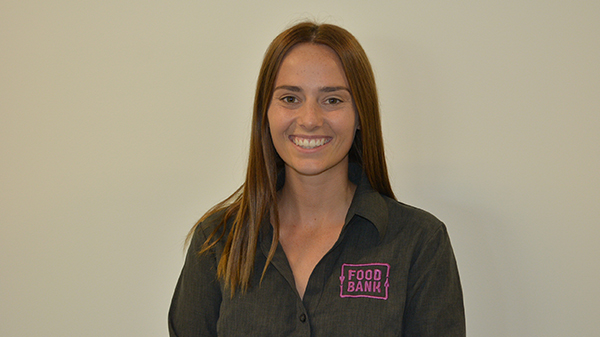Nutrition Major
Code MABUSJ
Why study at ECU?
About this Major
This major complements many other disciplines and is suited to students who aspire to be employed as a community or corporate nutritionist offering general nutrition advice, for employment in public health and health promotion roles.
The major provides practical science-based knowledge about nutrients and the non-nutrient substances in food, the assessment of nutritional status, nutritional needs during the lifecycle, community nutrition issues, the psychology and sociology of food habits, and current controversies in nutrition. Students undertaking this major should undertake a second major in Health Promotion, Addiction Studies or Occupational Safety and Health.
Code
MABUSJAvailability & Campus
| Location | Availability |
|---|---|
| Joondalup | |
| Mount Lawley | |
| South West | |
| Online |
Membership
Students can apply for membership with Nutrition Society of Australia (NSA).
Graduates, who complete this nutrition major within a science degree, are eligible to apply to the Nutrition Society of Australia's Register of Nutritionists.
Details
Structure
| Unit Code | Unit Title | Credit Points |
|---|---|---|
| NUT1121 | Human Nutrition | 15 |
| NUT1111 | Food and Nutrients | 15 |
| NUT1112 | Nutrition and Public Health | 15 |
| NUT2210 | Nutrition in the Life Cycle | 15 |
| NUT2220 | Nutritional Assessment | 15 |
| Plus 3 units from: | ||
| NUT3215 ^ | Exercise Nutrition | 15 |
| NUT3231 ^ | Food Habits and Trends | 15 |
| NUT3221 ^ | Community Nutrition | 15 |
^ Core Option
For more detailed unit information for this Major take a look at our Handbook. To organise your life for next semester visit the Teaching timetable.
Student handbookNotes
Learning Outcomes
- Apply broad human nutrition knowledge to a range of theoretical and practical health and nutrition science situations.
- Think critically to analyse, interpret and conceptualise complex health and nutrition problems.
- Think creatively to anticipate challenges and generate health and nutrition science solutions.
- Use digital technologies, numeracy and food literacies to access, evaluate and synthesise relevant information from multiple sources.
- Communicate health and nutrition science knowledge and uphold values in a range of community and professional contexts.
- Demonstrate global perspectives and diverse cultural competence.
- Work collaboratively and demonstrate initiative to implement social, sustainable and ethical nutritional and health science values.
- Demonstrate autonomy and accountability for own learning and self-reflective professional practice.
Career Opportunities
Possible future job titles
Community Nutritionist, Corporate Nutritionist, Research Nutritionist, Sports Nutritionist, Child Health Nutritionist, Health Promotion Nutritionist, Health Lifestyle Nutritionist, Aged Care Nutritionist
This Major can be studied in the following courses
Experiences
Facilities
View our facilities
Explore your options
Explore your options through the following media
Student stories
The Important Things
Things you should know about if you're thinking about studying here.
Course Entry
There's more than one admission pathway into an ECU course. It depends on what you've studied already, or your work or life experience.
Fees & Scholarships
Course tuition fees can change, but we can give you an estimate of your costs. If you're eligible, a scholarship or student loan can help too.
Applying
Applying for a course is a fairly simple process, especially if you have scanned copies of qualifications, your resume or other paperwork, ready to upload.
ECU Experience
Starting a course is an exciting and sometimes daunting time, so we make a massive effort to ensure you get all the support you need to have a positive experience.






